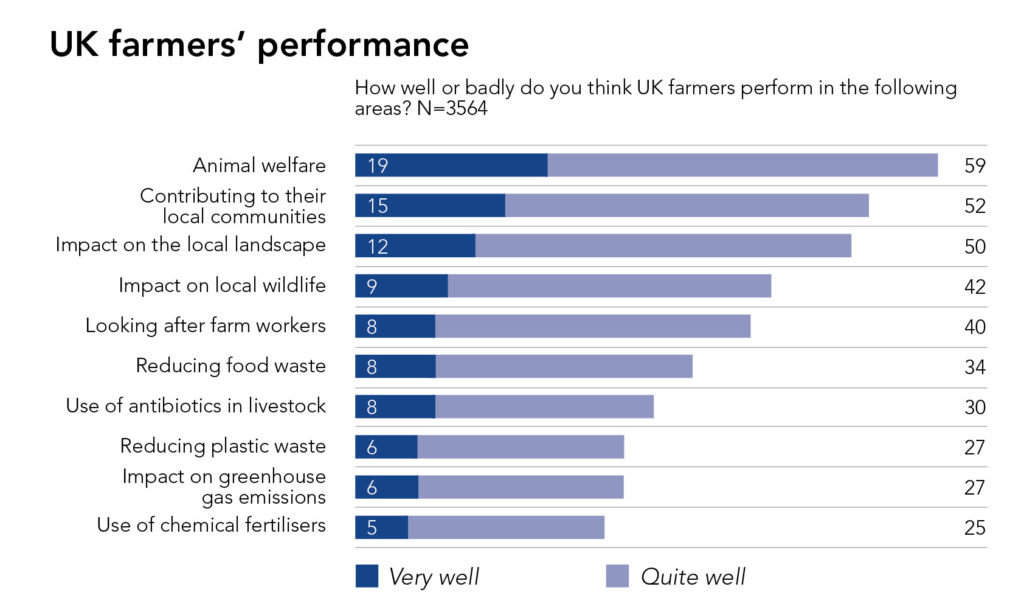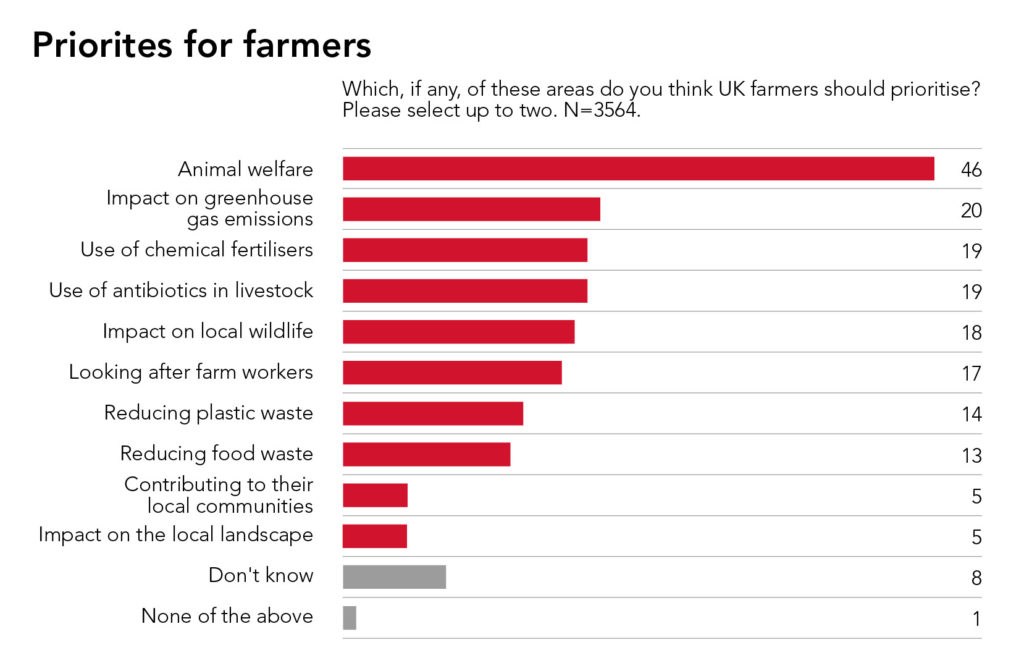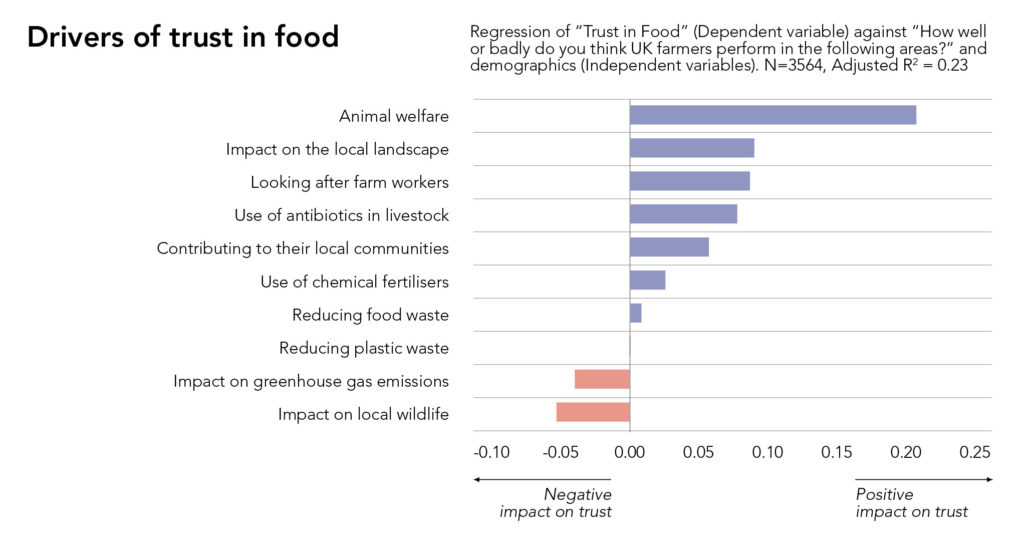

UK farmers are seen as performing well on animal welfare, contributing to the community, and having a positive impact on the local landscape.
Farmers are less trusted on issues such as the use of chemical fertilisers and on plastic waste.

However, in the eyes of most consumers, the priority for farmers is overwhelmingly to ensure high standards of animal welfare. All other issues are secondary, although it is notable that carbon emissions are now seen as the second most important area of responsibility, above the use of fertilisers and impacts on local wildlife.

A statistical technique known as “regression analysis” allows us to see which attitudes about farmers’ performance have the greatest impact on overall trust in food.
There are obviously a huge number of factors which influence overall trust in food, but this work suggests that farmers’ performance (combined with respondents’ different backgrounds) explains about a quarter (23%) of the variation in trust.
The analysis also allows us to say which aspects of farmers’ performance are most and least important as far as the public in concerned. The data suggests that believing that farmers are performing well on animal welfare is by far the most powerful belief in driving overall trust in UK food, followed by the impact on the local landscape and treating farm workers well.
In contrast, localised impacts such as use of fertilisers, reducing food waste, and reducing plastic waste have essentially no impact on overall levels of trust in UK food.